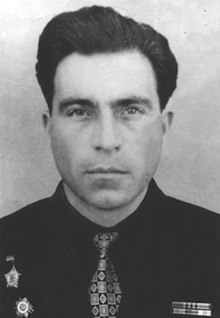.mw-parser-output .hidden-begin{box-sizing:border-box;width:100%;padding:5px;border:none;font-size:95%}.mw-parser-output .hidden-title{font-weight:bold;line-height:1.6;text-align:left}.mw-parser-output .hidden-content{text-align:left}You can help expand this article with text translated from the corresponding article in Russian. (May 2023) Click [show] for important translation instructions.
View a machine-translated version of the Russian article.
Machine translation, like DeepL or Google Translate, is a useful starting point for translations, but translators must revise errors as necessary and confirm that the translation is accurate, rather than simply copy-pasting machine-translated text into the English Wikipedia.
Consider adding a topic to this template: there are already 2,160 articles in the main category, and specifying|topic= will aid in categorization.
Do not translate text that appears unreliable or low-quality. If possible, verify the text with references provided in the foreign-language article.
You must provide copyright attribution in the edit summary accompanying your translation by providing an interlanguage link to the source of your translation. A model attribution edit summary is Content in this edit is translated from the existing Russian Wikipedia article at [[:ru:Мустафаев, Рефат Шемсединович]]; see its history for attribution.
You should also add the template ((Translated|ru|Мустафаев, Рефат Шемсединович)) to the talk page.
For more guidance, see Wikipedia:Translation.
Refat Mustafaev | |
|---|---|
 | |
| Native name | Refat Şemsedin oğlu Mustafayev |
| Born | 1908 or 1911 Büyük Yanköy, Taurida Governorate, Russian Empire |
| Died | 24 May 1984 Andijan, Uzbek SSR, Soviet Union |
| Allegiance | |
| Service/ | Red Army |
| Rank | Captain |
| Battles/wars | World War II |
| Awards | Medal "To a Partisan of the Patriotic War" 1st class |
Refat Mustafaev (Crimean Tatar: Refat Şemsedin oğlu Mustafayev, Russian: Рефат Шемсединович Мустафаев; 1911 – 1984) was a Crimean Tatar communist who served as a regional party secretary and battalion commissar in the Crimean resistance during World War II. After the Nazi troops were forced out of Crimea he was still subject to deportation to Kokand in the Surgun, forcing him to live away from him homeland of Crimea for the rest of his life because of his Crimean Tatar nationality. He was an activist for the right of return from the early days of the Crimean Tatar civil rights movement.[1][2][3]